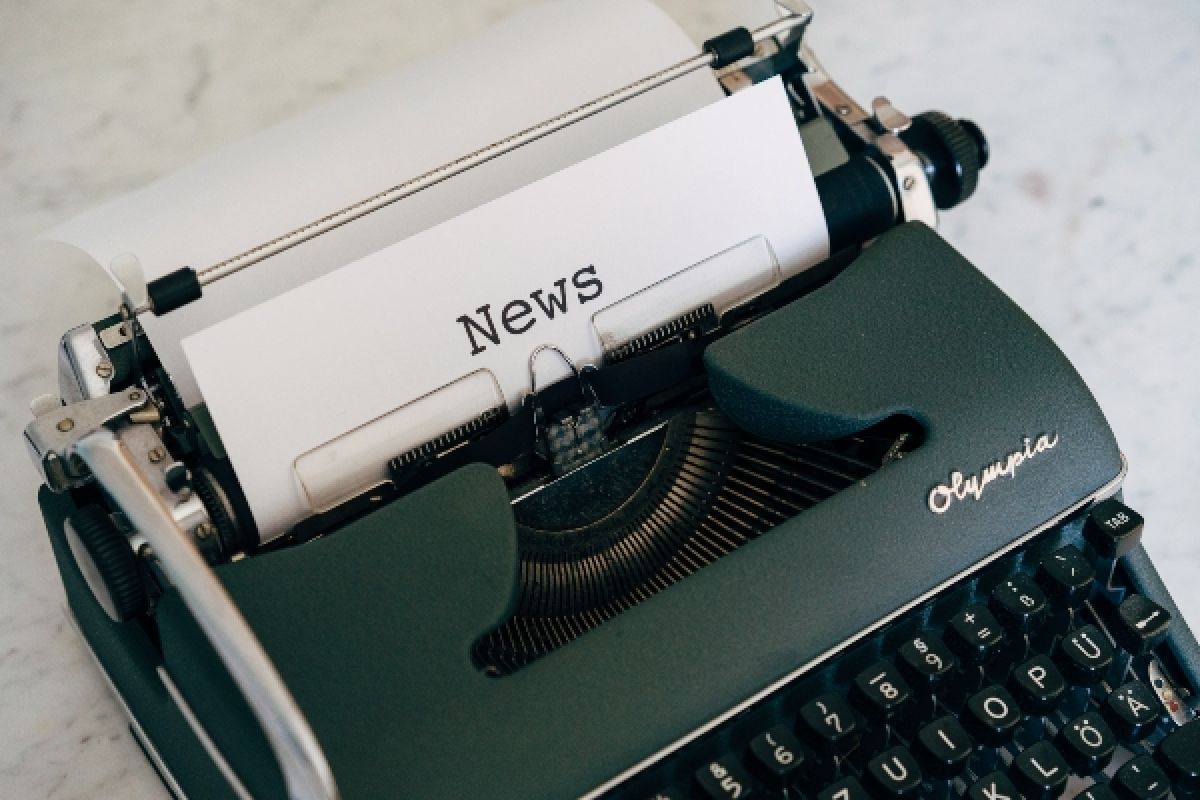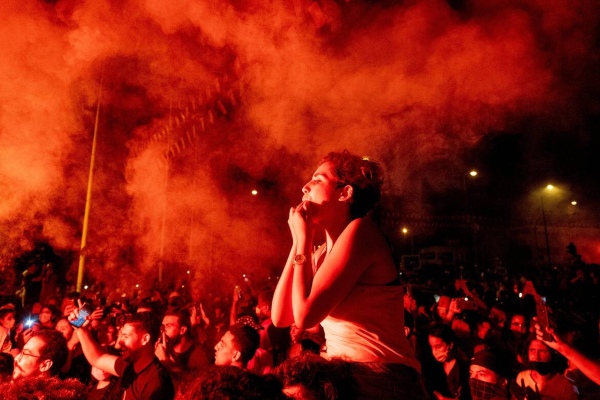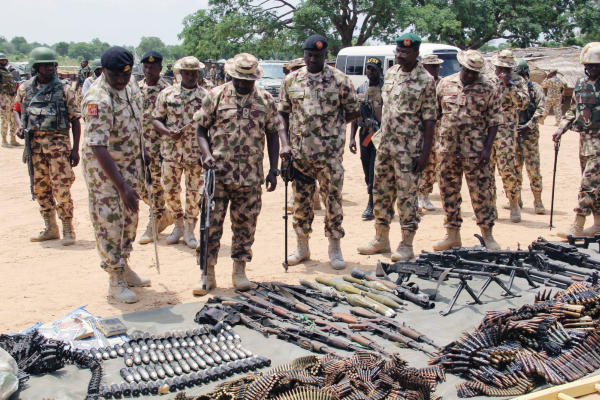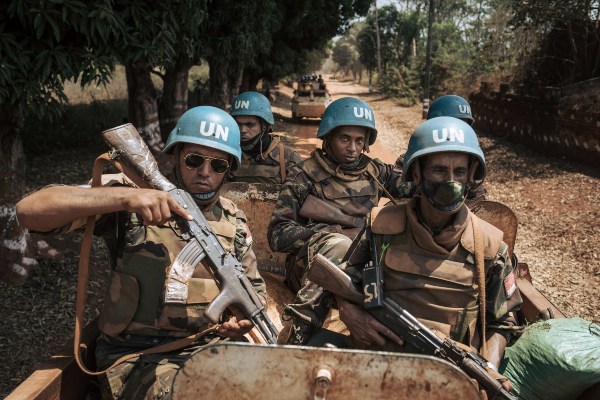August news round-up from across Africa

The latest news round-up from across Africa, including Tunisia's constitutional crisis to the conflict in the Central African Republic.
Nigeria
The Nigeria Customs Service (NCS) has intercepted and seized a record amount of pangolin body parts and elephant tusks, worth $54 million.
Law-enforcement officials and wildlife experts claim the country has become a hub for wildlife trafficking and gangs sending African pangolins to Asia.
They blame insecure borders, lax law enforcement, corruption and access to large ports.
The contraband included 17,137kg of pangolin scales, 44kg of elephant tusks and 60kg in pangolin claws, according to Colonel Hameed Ibrahim Ali, comptroller-general of customs.
The items were seized in the Lekki area of Nigeria’s Lagos State.
Three foreign nationals have been arrested in connection with the seized contraband, while a fourth person, believed to be the kingpin of the operation, is on the run.
‘The suspects arrested will soon have their date in court as NCS will leave no stone unturned to bring them to justice,’ said Ali.
NCS’s collaboration with British, US and German officials as well as international organisations to step up anti-smuggling efforts led to the seizure from Lekki, near Nigeria's main ports in Lagos, the customs head added.
The pangolin, a shy, critically endangered animal, has become one of the most trafficked mammals on earth due to demand for its scales in traditional Chinese ‘medicine’.
Seizures of pangolin scales, mainly sourced in Africa, increased tenfold between 2014 and 2018, according to the United Nations Office on Drugs and Crime (UNDOC).
In that time 185 tonnes of scales were seized, for which roughly 370,000 animals would have been killed, UNODC said.

Protesters in Tunisia.
Tunisia
Tunisian politics has been thrown into turmoil after the president shutdown parliament and ousted the prime minister and other top members of government, sparking concerns of coup. Activists and journalists are struggling to define what’s happening in the North Africa country’s young democracy.
In the face of nationwide protests over Tunisia’s economic troubles and the government’s handling of the pandemic, President Kais Saied decided last month to dismiss the officials, including the justice and defense ministers.
‘The day after the president acted, we had a conversation in the newsroom about whether it was a coup,’ said Thameur Mekki, the editor-in-chief of the influential media platform Nawaat.
Other news outlets aired programmes debating the ‘coup’ question.
Activist groups started worrying after he announced a series of other measures, including a nationwide curfew from 7pm to 6am for one month and a ban on gatherings of more than three people in public places. He denied allegations that he was fomenting a coup.
Key civil society groups warned in a joint statement against any ‘illegitimate’ extension of Saied’s 30-day suspension of parliament, and demanded a timeline for political action.
But according to Mekki, President Kais Saied personally called leading civil society groups and ‘gave assurances about their freedom to operate. I don’t know what that is, but it’s not really a coup,’ Mekki added.
‘People living through a coup don’t get to debate it on television.’
Plain-clothes policemen raided the offices of broadcaster Al-Jazeera in the capital Tunis and ordered it shut down, expelling all its staff.
In a statement published soon after, Al Jazeera said it views the raid as ‘an attack on press freedom’ and ‘as a troubling escalation and fears it will impede fair and objective coverage of unfolding events in the country.’
Tunisia, which ignited the Arab Spring in 2011 when protests led to the overthrow of its long-time autocratic leader, is often regarded as the only success story of those uprisings.
Democracy, however, didn’t bring prosperity. Tunisia’s economy was already flailing before the Covid-19 crisis hit, with soaring 18 per cent unemployment. Young people also took to the streets in mass protests earlier this year demanding jobs and an end to police brutality.
The government recently announced cuts to food and fuel subsidies as it sought its fourth loan from the International Monetary Fund in a decade, further fuelling anger in impoverished regions.
Tunisia’s Covid-19 lockdowns have only compounded those problems, and the government recently reimposed restrictions in the face of one of Africa’s worst outbreaks.
Angry at the economic malaise and the mishandling of the pandemic, thousands of protesters defied restrictions in Tunis and other cities to demand the dissolution of parliament. The largely young crowds shouted ‘get out’ and slogans calling for an early election and economic reforms.

Military commanders inspect a Boko Haram weapons haul.
Chad
At least two dozen Chadian soldiers were killed by suspected militant insurgents following an attack on their patrol in the troubled Lake Chad region, a senior local official confirmed.
‘Troops from a returning patrol were resting when they were attacked by Boko Haram on the 4th August,’ the region’s deputy prefect, Haki Djiddi, told AFP.
Army spokesman General Azem Bermandoa Agouna added that ‘24 soldiers were killed, several were wounded and others have scattered into the countryside’ during an attack at Tchoukou Telia, an island 118 miles (190km) northwest of the capital N’Djamena.
Lake Chad is a vast area of water and marshland bordered by Niger, Nigeria by and Cameroon as well as Chad.
Troops from ‘three army sectors have joined the soldiers who came under attack yesterday,’ Mahamat Fodoul Makay, the governor of Lake province, told AFP.
Local government sources claim that counter-operations are ongoing in the area. Authorities have also attributed the killings to the Boko Haram terrorist group.
Jihadists from Boko Haram and a rival splinter group, the Islamic State West Africa Province, have been using the region for years as a haven from which to attack troops and civilians. The Chadian authorities tend to call the jihadists Boko Haram regardless of their affiliation.
Chad is a key contributor to a multinational force in the Lake Chad basin fighting the jihadist group, which erupted in northeast Nigeria in 2009 before extending its campaign into neighbouring countries.
According to UN figures, it has since killed more than 36,000 people, most of them in Nigeria, and forced about three million to flee their homes.
Egypt
An Egyptian court has sentenced 24 Muslim Brotherhood members to death for the killing of police officers in two separate incidents, a judicial source said.
The state-owned Al-Ahram newspaper said the Damanhour Criminal Court ordered the death penalty for 16 defendants affiliated with the militant group, including Mohamed Sweidan, a regional leader of the organisation, for their involvement in the bombing of a police bus in Rashid in the Beheira governorate in 2015.
The report added that the blast killed three police officers and wounded 39 others in the city.
The same court also handed down the death penalty to eight Muslim Brotherhood members, who were accused of killing a police officer in December 2014 in Ad Dilinjat city in Beheira.
The case was dropped for three of the defendants due to their deaths.
Eight of the 24 accused were tried in absentia.
Al-Ahram did not clarify whether the verdicts are final or can be appealed.
However, the Shehab Organization for Human Rights, based outside Egypt, said the verdicts are final as they were issued by an emergency court.
Capital punishment for civilian convicts in Egypt, the Arab world’s most populous country, is carried out by hanging.
There are no exact figures for death penalties issued in Egypt this year except for 10 handed down in April and those upheld against 12 Muslim Brotherhood leaders over the Rabaa sit-in dispersal case in 2013.
In February 2019, Egyptian President Abdel Fattah el-Sisi defended the death penalty at a summit between Arab and European states.
Following the overthrow of former President Mohamed Morsi in 2013, Egyptian authorities have cracked down on Muslim Brotherhood members and outlawed the group.
Founded in 1928 in Egypt, the Muslim Brotherhood has established itself as the main opposition movement in Egypt despite decades of repression, and has inspired spin-off movements and political parties across the Muslim world.
But it remains banned in several countries including Egypt for its alleged links to terrorism.
Earlier this year, Amnesty International slammed Egypt’s ‘significant spike’ in recorded executions, which saw a more than threefold rise to 107 last year, from 32 in 2019.

Morcocan UN peacekeepers in the Central African Republic.
Rwanda
Rwanda has sent more troops to reinforce United Nations (UN) peacekeepers in the Central African Republic (CAR), where they will help protect a key highway supplying the capital, the UN said.
An advance party of the contingent composed of 300 peacekeepers led by Lt Col Patrick Rugomboka was airlifted from Kigali International Airport to Bangui last month. The deployment is part of a UN Security Council resolution in March to beef up its Multidimensional Integrated Stabilization Mission (MINUSCA) force in the CAR by around 3,000 men.
One of the world’s poorest countries, the Central African Republic has been battered by civil conflict since 2013, with armed groups fighting for resources and power.
‘It’s the first part of the [Rwandan] unit which arrived today to secure the road between Bangui and Beloko,’ a town on the Cameroon border, MINUSCA spokesman Abdoulaziz Fall told AFP.
The troops will remain for one year, he added. ‘The rest of the [Rwandan] battalion of 450 troops will arrive by the end of the year.’
The additional troops were deployed at the request of the UN to reinforce its peacekeeping mission in the turbulent country.
Fighting in the CAR has reduced in overall intensity since 2018, but the country remains troubled by serious flare-ups.
Rwanda is the third largest peacekeeping contributor in CAR with more than 3,000 troops deployed in different parts of the country since 2014.
Last December, six armed groups teamed up in an offensive against President Faustin Archange Touadera in the runup to elections.
They advanced down the highway towards the capital but were thwarted by MINUSCA and government troops, backed by Russian and Rwandan personnel who were rushed to the CAR under bilateral security agreements.
The government forces then went on the offensive, retaking key towns from the rebels and wresting control of some of the territory they had occupied for years.
In recent weeks, rebel attacks have stepped up.
Earlier this month, at least six civilians were killed near the border with Cameroon, in the northwest of the country.



